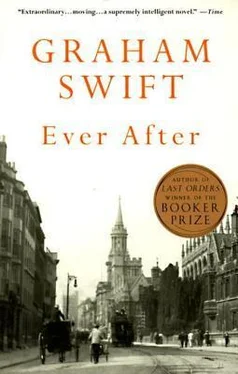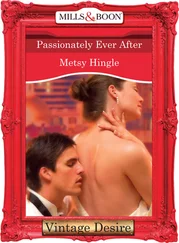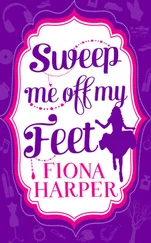She walks towards me across the lawn; waves; I wave in return. She is wearing a sleeveless, mutedly floral summer frock of some thin fabric, which, if it were not for the dark yew hedge behind her, would allow the sunlight to show up, in hazy outline, her still slender-but-firm body — which, let me make this plain, I have never seen otherwise exposed.
Though the point came near.
She walks with a fluid stride, which would be truly gazelle-like if there were not a touch of sheepishness about it, a self-induced and long-practised hesitancy, an air of brave cheerfulness undermined by contrition. She carries this large straw bag, out of which there peeps the glossy cap of a thermos flask and a rumpled blue-and-white-check cloth; and I know, without seeing, that also in the bag, along with the decanted, chilled white wine in the thermos, are a few choice morsels purchased on her way: the rudiments of a little déjeuner sur l’herbe . Though there will be nothing scandalous, not now, in this picture.
The straw bag is strangely affecting. It reminds me of those ubiquitous, oddly rustic “shopping bags” that were once, in those far-off days before the advent of polythene, a standard accoutrement of every woman, including even my mother, but which now seem folksy and quaint. It somehow looks right in the hand of Katherine Potter, in whose simple, flaxen tresses, vulnerable shoulders and Arcadian attire you might detect the traces of a pastoral wistfulness: a former Sixties flower-child (fallen since on thorns), a one-time student of Eng. Lit., wallowing, Ophelia-like, in simpering, whimpering poetry.
Not my type. Not my type at all.
She waves. The nurse; the convalescent. The wounded paladin; the pitying lady. These titbits stolen from the lord’s table. I think she thinks she is restoring me to life. That that is her duty now. I think she thinks it was because of her—
A little fact I omitted to mention above: When she touched my wrist that evening at Potter’s, it was as though I had forgotten that I still had a wrist, as though I had forgotten that my wrist, with its little forest of dark, pliant hairs, still belonged to me. Later, alone, I looked at my wrist and said to myself, absurdly: This is my wrist.
And when I watch her walk across the lawn, she seems to me (but don’t trust the words of someone newly snatched from the grave) like life itself. Like life itself.
She crosses the lawn and halts in front of me. “Hello,” she says. “Hello,” I say. She puts down the basket. A light breeze wafts across the garden and just for a moment it wreathes her hair about her face and flutters her thin dress against her body with almost sentient, Botticellian tenderness. The bare shoulders are infallible. Their appeal goes to some helpless spot at the centre of the chest. She starts to unload the basket. There are real napkins, real wine glasses, nothing skimped. I take the notes I have only just placed on my tray — it reconverts, you see, to its proper use — and shuffle them into my briefcase.
“I haven’t come at a wrong moment?” she says. She always says this, or something like it—“I’m not disturbing you?” “Would you rather be by yourself?” And it’s then that she wears her most contrite looks.
“How’s it going?” she says.
“Fine,” I say.
I don’t know which would hurt her more. To tell her (but I think she knows this, I think she really does) that it wasn’t because of her, no, not exactly — and so deprive her of her stricken but gratifying role. Or to tell her that it was because of her, yes, as a matter of fact — and so turn that role into a lasting, remorseful truth.
I don’t know which is true myself.
How can one person take the place of another?
She pours wine from the thermos, and condensation mists the bowl of the glass. She hands me the glass, then she says, meaning it lightly but somehow sounding reproachful, “What was that you had to hide in your briefcase?” And it’s only at this moment that I know for certain that I’m going to go through with the decision I’ve made.
“I’ll tell you — in a while,” I say.
First, we eat, we drink. We are surrounded by warmth and flowers. Under the Indian bean tree, who loves to lie with me … In far-away Chicago Potter will be just waking up. I’m prepared to bet that he is alone in his bed. I’m prepared to bet that, for once, he will not avail himself of the customary opportunities of a conference abroad. He will be the chaste scholar. And he will think a lot of Katherine, and of me.
I drain my glass, then reach over to my briefcase and take out — no, not these scribbled pages, but a complete, freshly made copy of the Pearce manuscripts. What does it matter? Who am I to raise Matthew Pearce from the dead?
“For you,” I say. “For both of you. I want you to have it now.”
The thing was that he saw an ichthyosaurus. The thing was that he had come face-to-face with an ichthyosaur, on the cliffs of Dorset in the summer of 1844 (age: twenty-five).
I see him lurching, slipping, fleeing down that wet path towards the beach. Everything is chance. It might so easily have been otherwise. He might have gone to the aid of the young woman who even then, as he scrambled blindly by, sat on the damp ground, encircled by a little attentive group, nursing a twisted ankle. Only a minute before, under the flapping tarpaulin, he would have heard her sudden cry. And if he had gone with the others to assist, if he had not lingered alone for those few mesmerical moments, his whole life might have been different. He might have married the young woman. What an opportunity missed! There she was, pale, shaken, in need of rescue and obliged to show, for all the fussing of her chaperone, an unaccustomed amount of lower leg. He might have fallen in love with this pretty invalid and lived happily ever after. Instead of which, he chose to stare into the eye of a monster.
And it was meant to be a holiday. A week’s recreation which, given Matthew’s general cast of mind, would require an element of study — he would try his hand at this fossil business — but which might not exclude (Lyme Regis was well known not only for its fossils but for its summer crop of eligible daughters) a little amorous exploration.
The facts about Matthew Pearce as they stood in the year 1844. The facts infused with a good deal of theory, not to say imagination. The Notebooks do not begin till 1854, though they begin with a backward reference to that summer day in 1844, which, scrupulous as Matthew’s memory was, might have been subject to a degree of narrative licence. The facts, mixed with a good deal of not necessarily false invention. Pace Potter, I am not in the business of strict historiography. It is a prodigious, a presumptuous task: to take the skeletal remains of a single life and attempt to breathe into them their former actuality. Yet I owe Matthew nothing less. As Ruth would have said, the script is only a beginning: there is the whole life . Let Matthew be my creation. He would have appreciated the commitment — not to say the irony. And if I conjure out of the Notebooks a complete yet hybrid being, part truth, part fiction, is that so false? I only concur, surely, with the mind of the man himself, who must have asked, many a time: So what is real and what is not? And who am I? Am I this, or am I that?
He was born in Launceston, Cornwall, in March 1819, son of John Pearce, clockmaker, and Susan Pearce. And he began the Notebooks thirty-five years later, on the day of the death of his third-born, Felix. So much for plain, hard fact.
But I prefer, to get the measure of him, to picture him early one morning, in his twenty-second year, in an inn-yard in Oxford, about to leave that city, a fully educated young man, to take his modest and unsung place (he has no fond ideas) in the world. His journey home — for in the first place the world would have meant his father — would have been by stage-coach, a matter of some two-and-a-half days on the road. Thus at this point in his life Matthew would have belonged to the Old World. But only just. Within another five years he would have been able to have made the journey, at least as far as Exeter, by train. Within another ten years Matthew himself would have helped, in his small way, to guide the Great Western Railway — then nudging along the Thames valley — as far as Plymouth.
Читать дальше












